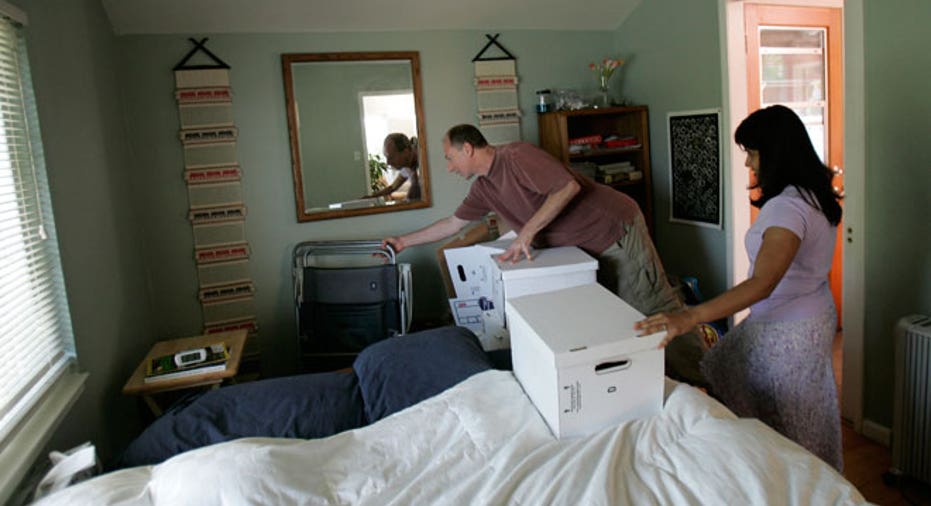Big business trend leaves small business behind & bruised

Don't you, forget about me Don't, don't, don't, don't Don't you, forget about me - Simple Minds
Nobody likes to say goodbye. There have been countless ballads sung about it, volumes of books written about it and Academy Award winning movies dramatizing it.
But goodbyes are inevitable. And they happen in all areas of life, not only in our personal lives, but also our professional lives
In fact, if you work in Corporate America, there's a good chance you'll be saying goodbye sometime soon, and not just because a colleague quits. Corporate relocations send professionals their separate ways, too.
According to the 50th Annual Atlas Corporate Relocation 2017 Survey, 38% of companies with 5000+ employees relocated 400 or more employees last year. And a whopping 72% expect those numbers to either stay the same or increase next year.
Reeling from Relocation Although relocations invoke images of goodbye cakes eaten in conference rooms, or a stiff drink with coworkers at a favorite watering hole, there’s a group of people who are seriously affected by relocations, and all too often overlooked – small businesses owners.
"In our case it was the restaurants, dry cleaners, flower shops, hotels and a few others," said Montvale Mayor Mike Ghassali, referring to the ripple created by Mercedes leaving his New Jersey town for Atlanta.
Corporate relocations impact a wide range of shops and firms, even if they don’t do business directly with the larger corporate entity. “The impact is substantial,” Ghassali said.
“It affects perceptions,” added Oz Griebel, the president and CEO of the MetroHartford Alliance, who unsuccessfully sought the Republican nomination for Connecticut governor in 2010.
In the last 2 years, his state has faced the departure of GE from Fairfield and the decision by Aetna to move corporate HQ out of Hartford.
And the trend is not isolated to Connecticut, New Jersey or the Northeast. In California, Nestle packed up its suburban headquarters in Glendale, while in Illinois more than a few companies including McDonald's and Caterpillar left suburbia for the nation's third largest city, Chicago.
Although these and other companies cite a wide range of reasons for their moves, a common theme has emerged among them all – a belief that it will be easier to attract younger and highly skilled workers if the company is located in a major metropolis.
Tales of the City
According to a 2014 report from Nielsen, Sixty-two percent of millennials prefer living in a city environment where they can be close to shops, restaurants and offices. And 40 percent say they would like to live in an urban area in the future.
Cities are safer and cleaner than they have been in decades and provide cultural and artistic outlets, all of which appeal to college educated young professionals. Also they provide a wide range of nightlife options and an even wider range of potential life partners. The appeal is understandable.
There seems to be little research into how deeply a corporate relocation impacts small businesses. Neither the U.S. Chamber of Commerce nor the Small Business Administration, nor other state agencies were able to provide hard data.
Montvale Mayor Mike Ghassali, however, offered a few suggestions, for local leaders, should they find themselves faced with a major corporate relocation.
From Lemons Make Lemonade
"We formed an economic development council that helped connect small business with other large companies in the area. The bigger companies, in my area, Sharp and KPMG, were very sympathetic to what was happening and wanted to help."
Ghassali also suggests local business leaders and politicians band together and schedule informal conversations, such as coffee hours. Not only do they provide small business with a platform to express concerns, they also provide a forum for discussing ways in which the public and private sectors might come together.
From those informal coffee hours held in Montvale, Ghassali learned that small business owners in his community would benefit from a better understanding of technology and how it could help generate new business. "We held a summit where they could meet with tech companies and learn how to use tech more effectively, particularly ways in which to better leverage free services provided Google," he said.
Oz Griebel added that he sifts through data, with an eye on students who will soon graduate college in the area. Already familiar and comfortable in the environment, Griebel believes with a little prodding, many young people will want to stay. "This area can offer them great value," he said, noting that not every young person enjoys city life.
And, he added urban millennials, loosely defined as people born from 1982-2004 are getting older. In turn, he can see the interest in big cities and big city life waning in the not too distant future, as millennials start to have children. "For young families, my area offers great value, especially home value,” he said. “The trend will turn and when it does, we'll be ready."



















